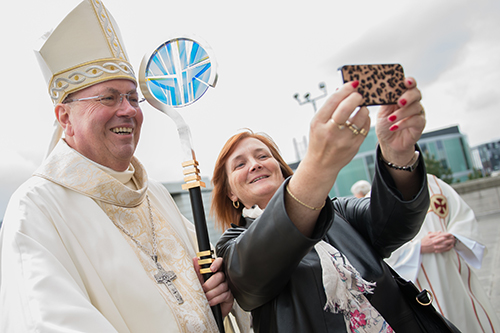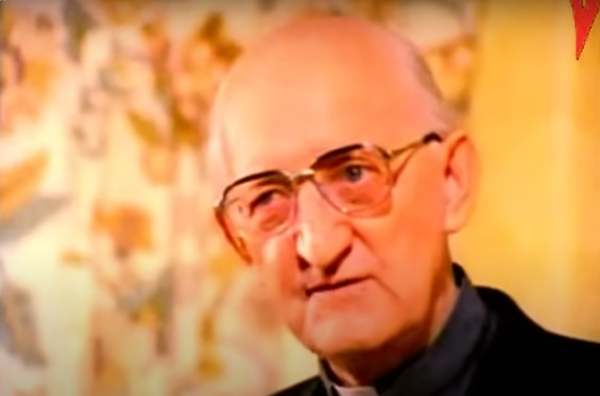A Polish priest who founded the international Oasis, or Light-Life youth movement, which inspired the first World Youth Day, has been posthumously awarded his country's highest state honour.
The award of the White Eagle to Fr Franciszek Blachnicki (1921-1987) comes four months after confirmation that he was murdered by communist agents, which has led to renewed calls for his beatification as a martyr.
President Andrzej Duda made the award in recognition of Blachnicki’s “remarkable services” to Poland “in times of peace and war”. The priest had been one of the Polish Church's “most distinguished clergy representatives” under communist rule, Catholic outlets reported.
Blachnicki, an Auschwitz concentration camp survivor, converted to the Catholic faith after he escaped a 1942 guillotine sentence, commuted instead to hard labour under Nazi occupation.
He was placed under tight surveillance by Poland's post-war communist rulers following his ordination in 1950.
Despite constant harassment by the authorities, he founded a nationwide Catholic Temperance Crusade in 1957 while serving as parish priest, as well as Light-Life, which promoted renewal after the Second Vatican Council.
After Poland’s Solidarity union was crushed under martial law in December 1981, Blachnicki avoided an arrest order and remained in West Germany, where he set up a Marian institute at Carlsberg as well as a Christian Service for the Liberation of Nations.
He died suddenly in mysterious circumstances on 27 February 1987.
Campaigners opened a Cause for Fr Blachnicki’s beatification in 2005 and passed it to the Vatican in 2015. In October 2020, the Diocese of Katowice said it had approved exhumation of the priest's remains from a parish church in Kroscienko for forensic and toxicology tests, after the official National Remembrance Institute (IPN) reported suspicions that the priest had been poisoned by communist agents.
In March this year, Poland’s justice minister Zbigniew Ziobro said tests and witness interviews had now confirmed that Fr Blachnicki died of poisoning. The Archbishop Emeritus of Katowice, Wiktor Skworc, said the ruling opened the way to his beatification as a martyr, removing the need for proof of a miracle at his intercession.
Fr Blachnicki, whom John Paul II praised as an “ardent apostle of inner renewal and conversion”, was one of several Solidarity-linked clergy murdered in the 1980s whose cases have never been fully resolved.
The best known of them, Fr Jerzy Popieluszko (1947-1984), was beatified as a martyr in June 2010.
A Polish Church historian said he hoped charges could still be brought against former agents involved in Fr Blachnicki's murder and the killing of other Catholic clergy.
Andrzej Grajewski, who has researched Bachnicki’s case, told the KAI agency that a married couple, Jolanta and Andrzej Gontarczyk, had infiltrated the priest’s inner circle while working as Interior Ministry agents codenamed “Yon” and “Panna”. He said they had been named by the IPN as prime suspects in his murder.
He added that Fr Blachnicki had been warned about the couple by Solidarity militants, but had died suddenly after visiting Andrzej Gontarczyk, who headed the priest’s Maximilianeum printing house.
The couple had fled to Yugoslavia in 1988, Grajewski said, later separating after their return to Poland, where Jolanta Gontarczyk worked in the Interior Ministry in the 1990s. She currently heads a campaign group as Jolanta Lange.
The communists treated Blachnicki as one of their most dangerous enemies “because he had broken one of their core systemic monopolies – the atheistic upbringing of youth”, Grajewski told KAI.
“The result was many years of surveillance, harassment and operational work carried out not only by the Polish secret police, but also by the East German Stasi and the Soviet KGB.”



 Loading ...
Loading ...